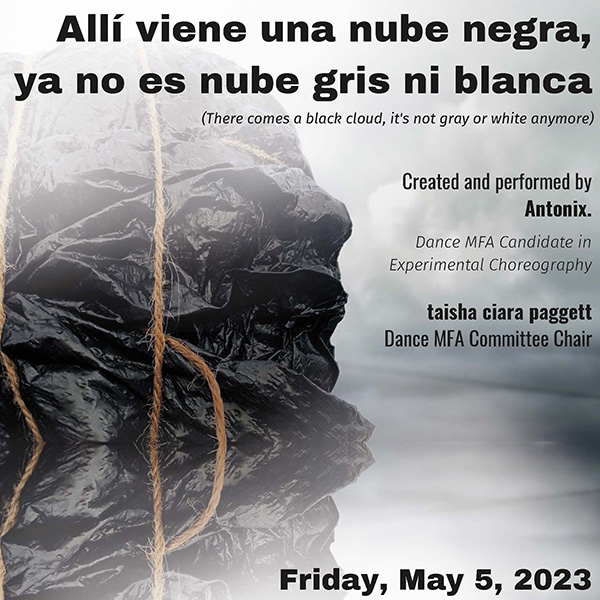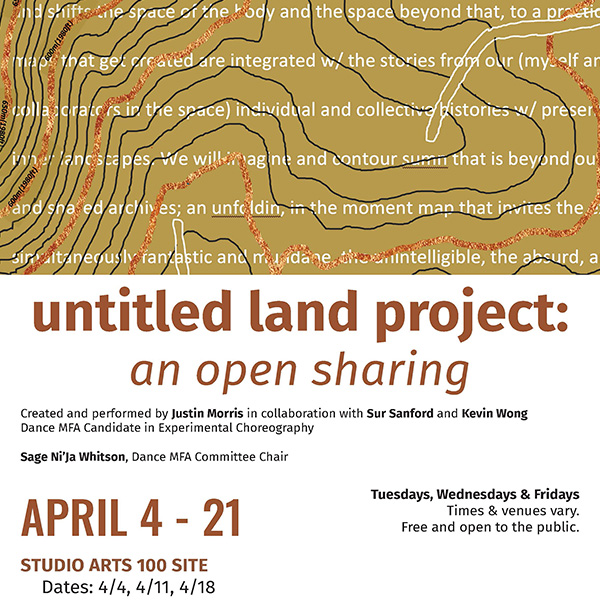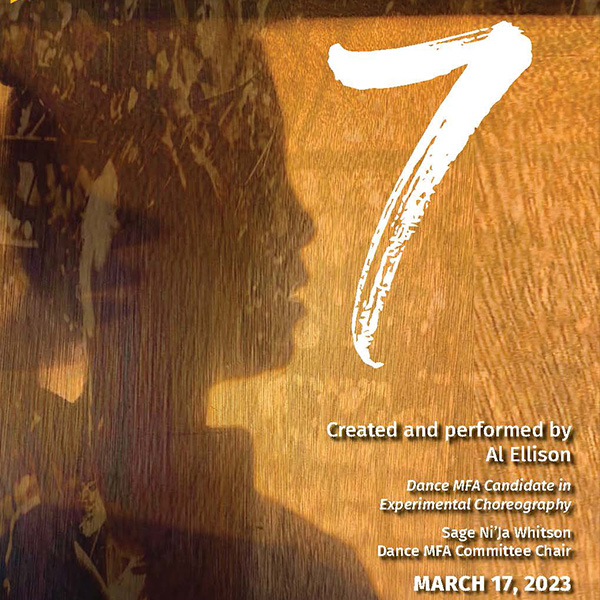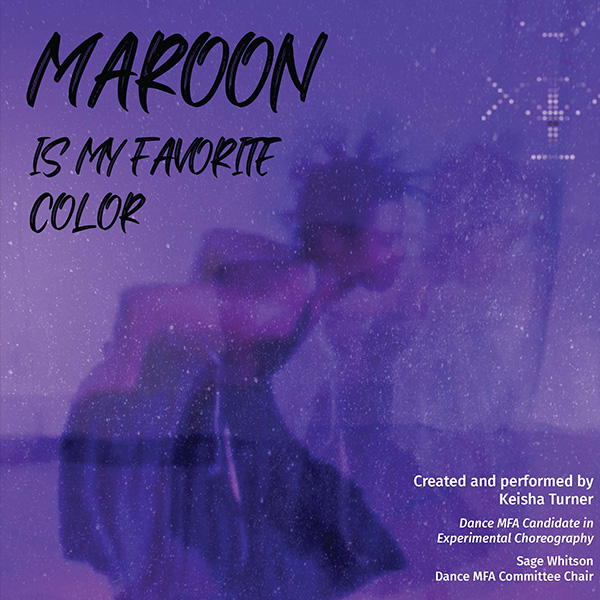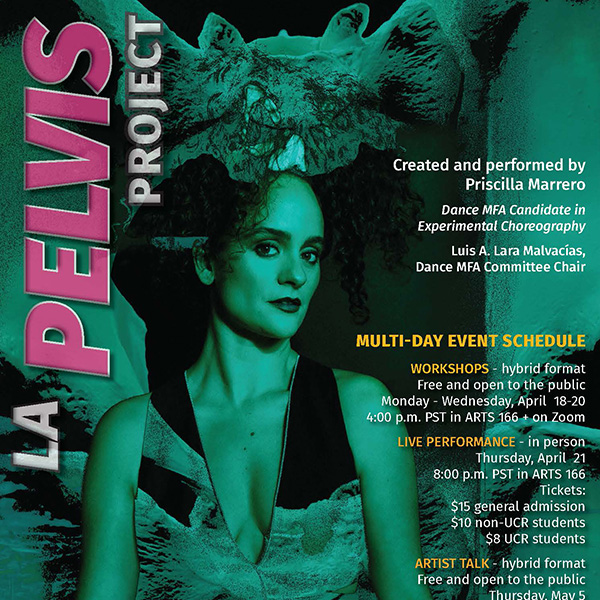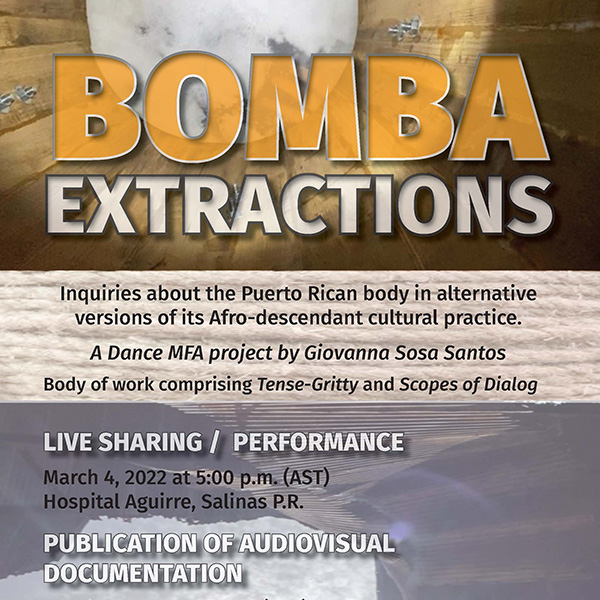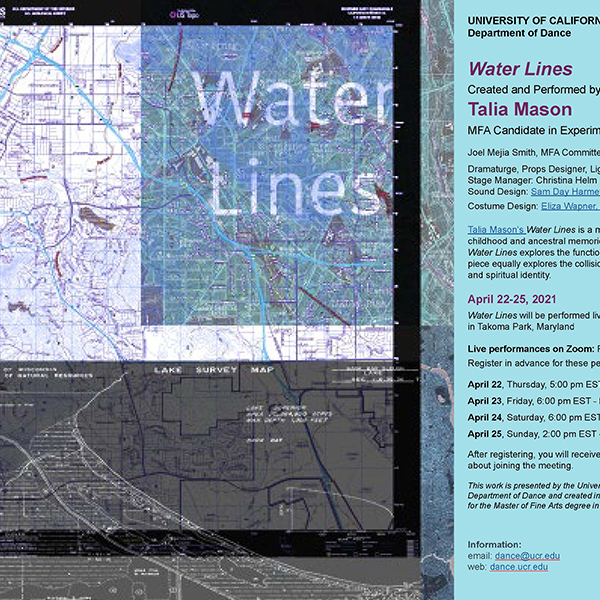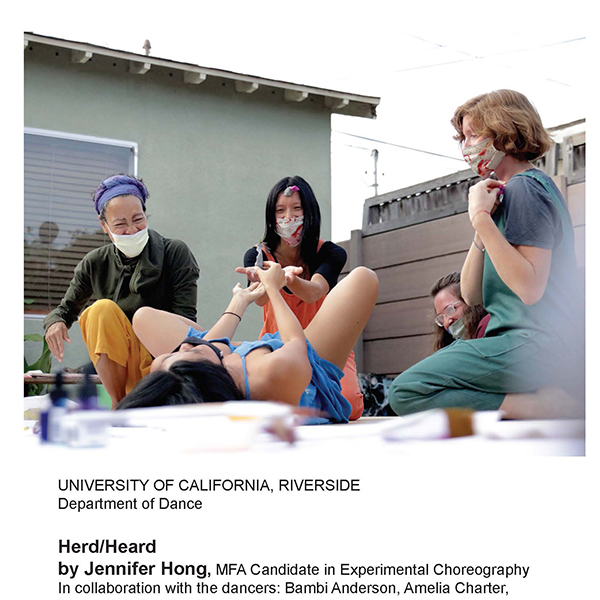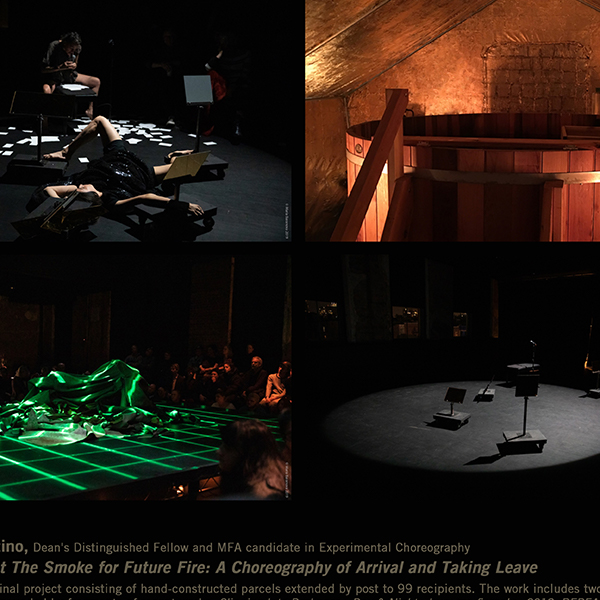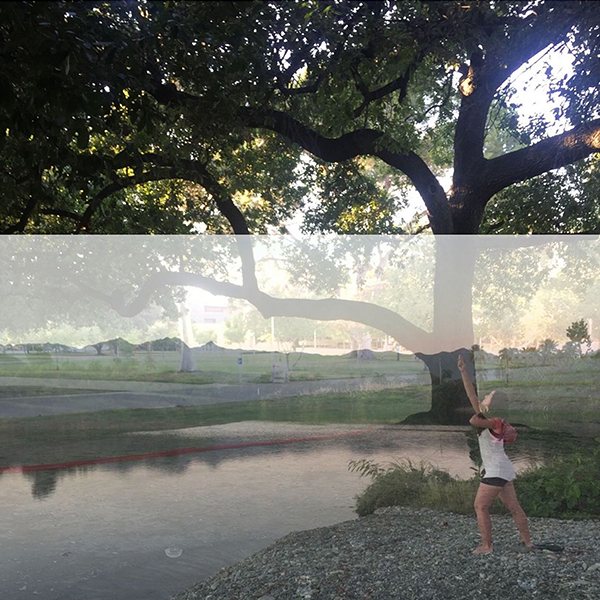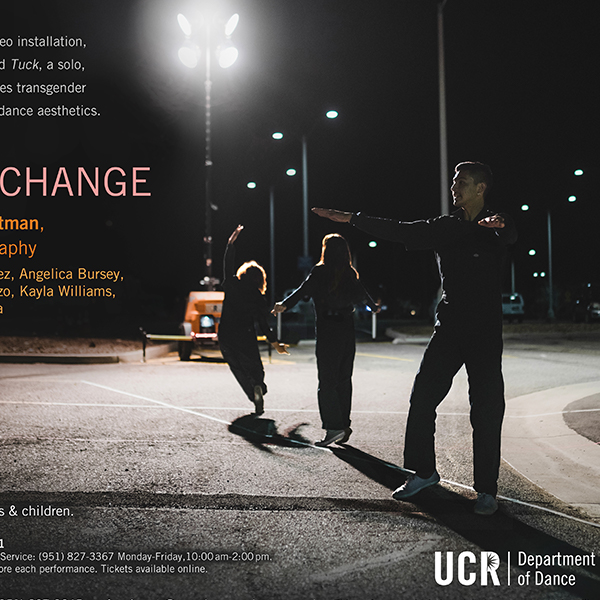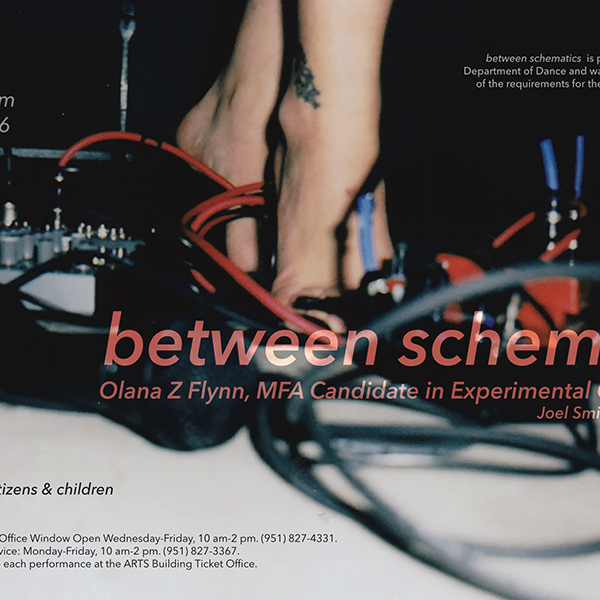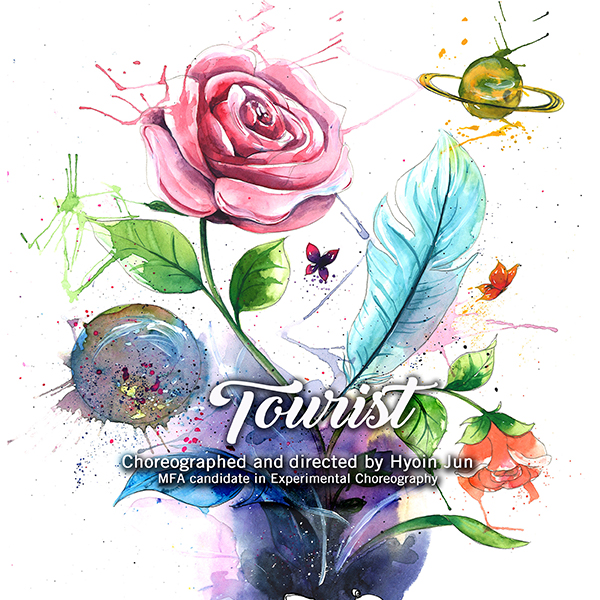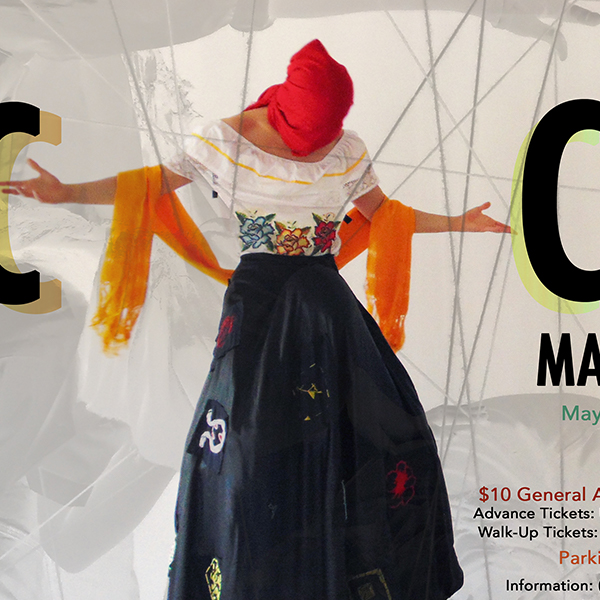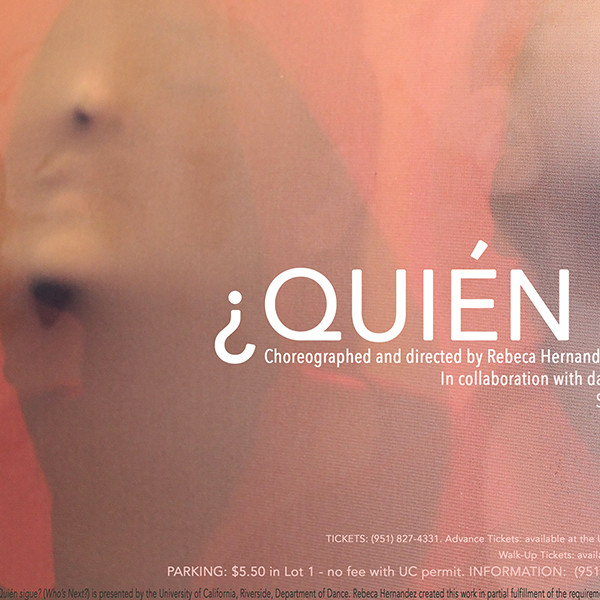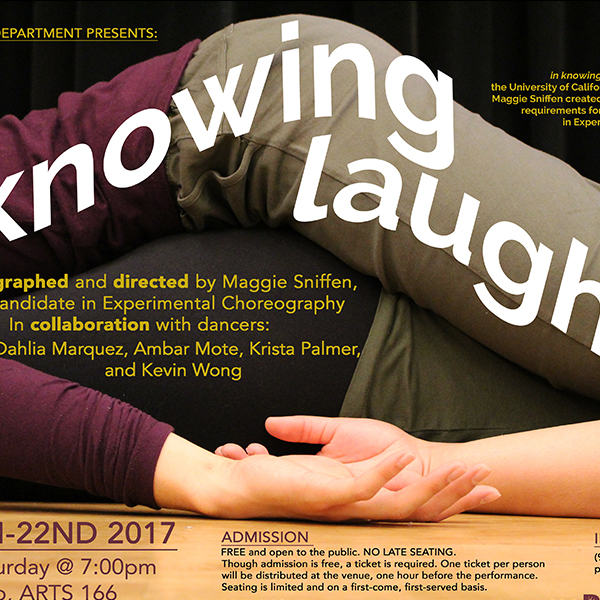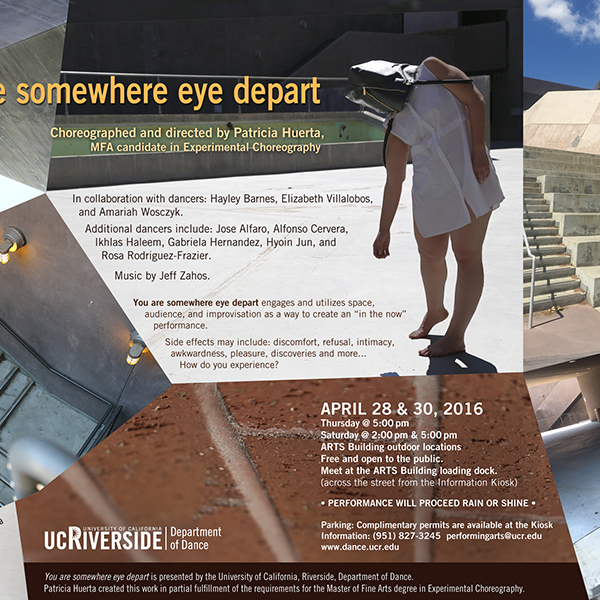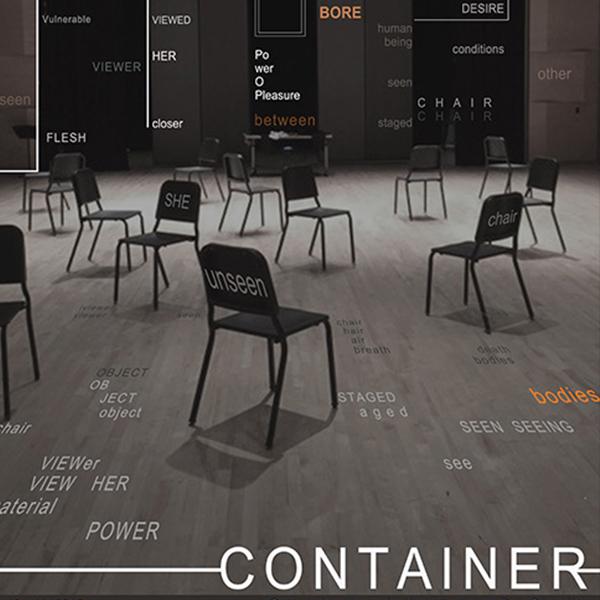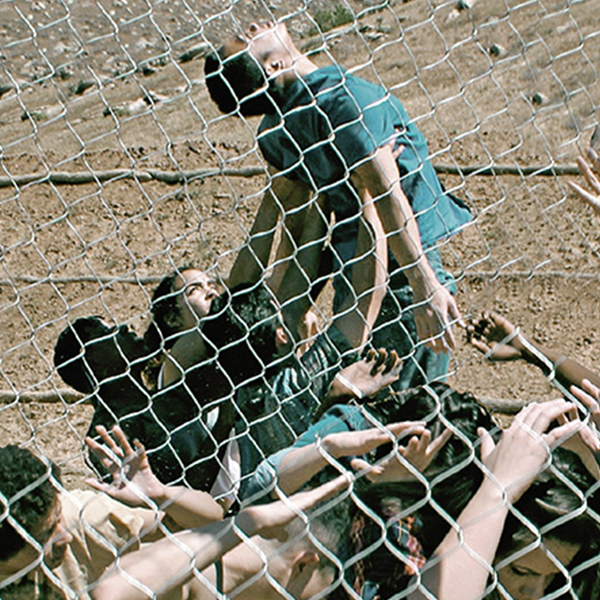M.F.A. FINAL PROJECTS
FINAL PROJECT PROPOSAL
MFA students are required to write a 5-15 page proposal for their final project, to be approved by the committee, by end of fall quarter their second year. The proposal should make evident the needs of the student, including desired venue, material and production needs, as well as any collaborative expenses. Once a draft is submitted, a meeting will be called with the department’s production staff and the committee members to discuss logistics and budget.
FINAL PROJECT
The final project may take shape in many forms in which the student’s research is made evident. Because of the experimental nature of the program, it is difficult to specify a requirement or form the project must take. For example, students may 1) undertake to create site-specific dances occurring in different locales over several months, 2) organize opportunities for interactive choreography with distinct groups of performers, 3) develop a digital media or film project, or 4) create a portfolio of many smaller projects. Whatever its final form, the project must demonstrate a thorough investigation and committed execution of a defined aesthetic concern. The final project also includes a public Artist Talk where the candidate shares their research and reflections.
Additionally, a written document, 20-40 pages long, outlines the aesthetic focus of the student’s research, reflects on the creative process, and provides a historical and philosophical contextualization for the project.
The written component should:
Describe and assess the process, choreography and final project performance(s), including references to the core studio courses, theory and history courses and faculty dialogue, as well as lines of independent research.
Position the work in relation to the field – lineage, direct influences, similar inquiries by others — and in relationship to other disciplines artistic or theoretical.
Use the writing as an opportunity to develop language for articulating the work –– significance and potential next directions of creative research – for job talks, grant proposals, promotion, etc.
Address issues posed by the chair and committee members.
This written document is not a THESIS per. se., but is flexible and presented in a format that reflects the particular project, with the guidance of the chair and approval by committee members. It can (but is not necessarily required to) include or attach as an appendix a pivotal paper written in a course, different kinds of writing, journal entries, scores, photographs and/or other relevant elements. Such appendices must be in addition to at least 20 written pages, in order to fulfill the catalogue requirement.
Publicity material posters generated by Kathy DeAtley/the Promotions and Publicity Manager are archived on the Department of Dance website, usually annually. Grad Division does not require formal filing of the written component document, which eases the time frame for completion in some ways. However, it also means that Rivera Library does not shelve print copies of the written components.




